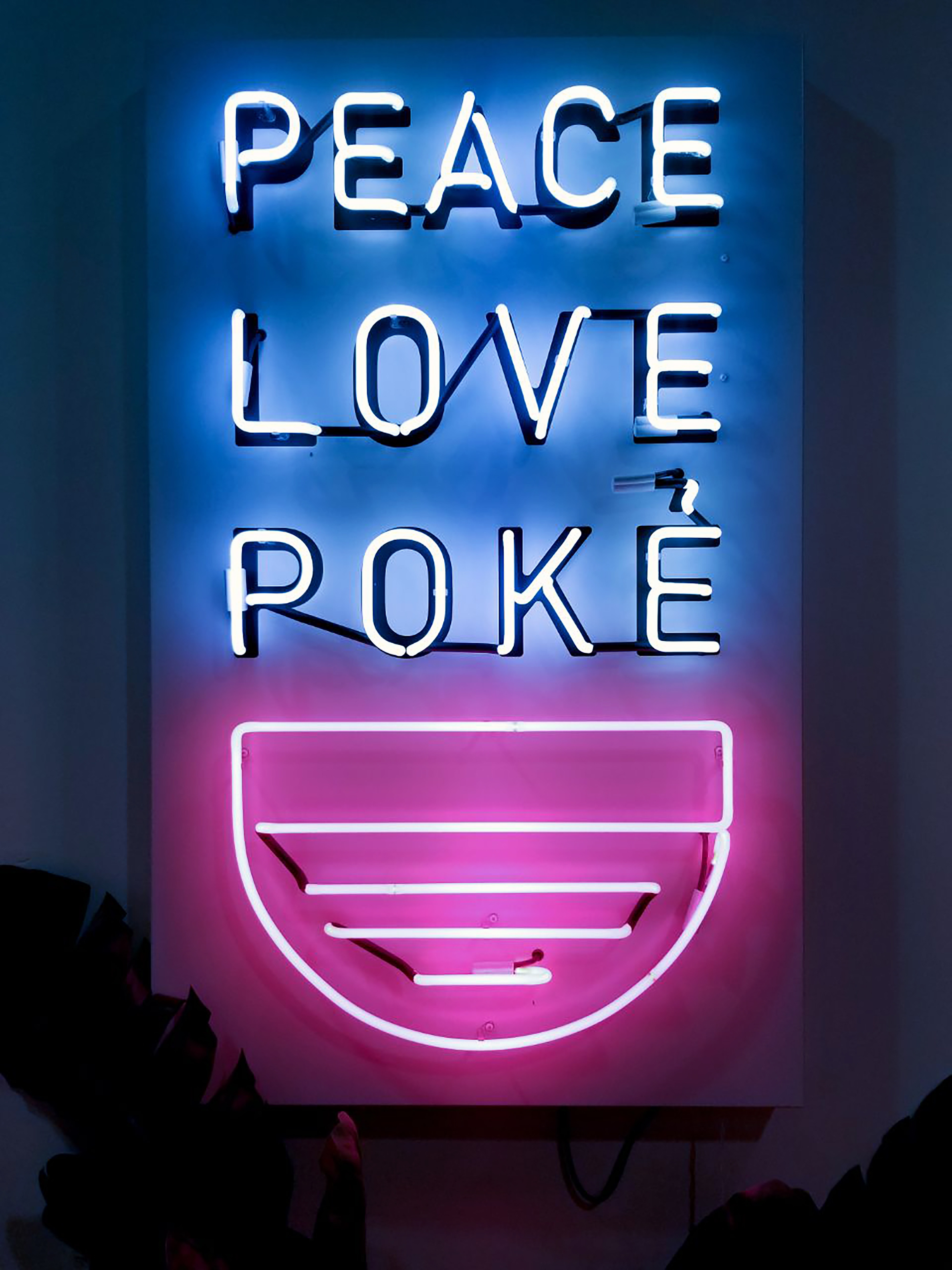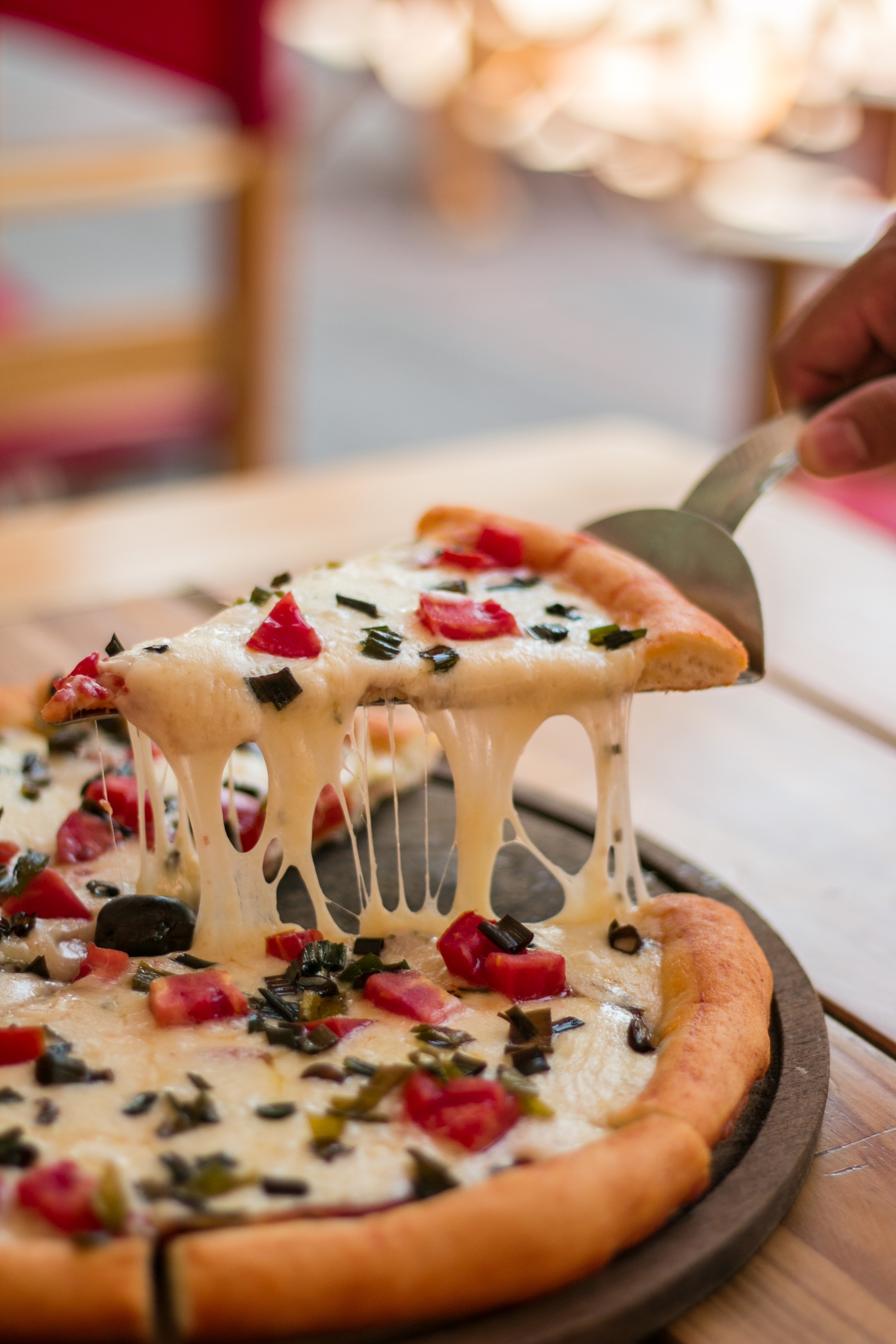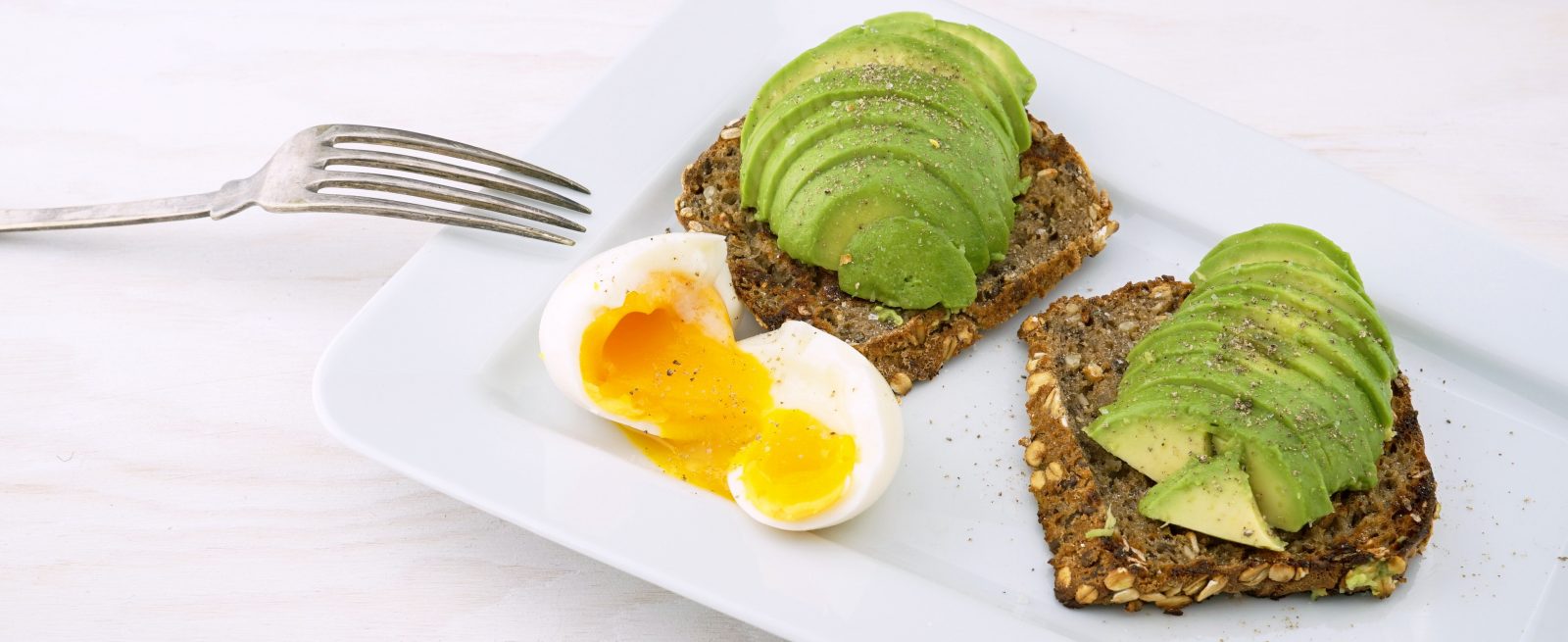Grubhub Trends: Goodbye Avocado Toast, Hello Brownies?
7 Min Read
Bean burritos, brownies, poke and cauliflower were among the top food "surges" of 2018, according to Grubhub's annual "Year in Food" report. Grubhub analyzed millions of orders placed by more than 16 million diners on its platform and surveyed consumers across the country on their ordering tastes and eating habits.
In addition to examining ordering trends on its platform, Grubhub also surveyed nearly 2,000 respondents across the United States who have ordered food in the past three months to understand their points-of-view on how food, food delivery and pickup impacted their lives in 2018. Key takeaways from the survey data are:
While we know America loves to order in, what matters most to people when choosing when, what, and where to order? Let's dive in.
The What*: Fast casual reigns supreme with survey respondents — 40 percent ordered most from these types of restaurants, followed by quick service (32 percent) and casual dining at (24 percent.)
The Where: It's no surprise the majority (80 percent) of survey respondents order food to their home. Other locations include work (35 percent), with friends (32 percent), on vacation (18 percent), and traveling for work (14 percent).
The Why: The top five reasons on why survey respondents order in include:
- Didn't feel like cooking (43 percent)
- Satisfy a craving (30 percent)
- Saving time from cooking/cleaning (28 percent)
- At home game night/movie night (25 percent)
- Family night dinner (24 percent)
Foods of the Year
Plant-based foods were on the rise in 2018. Bean burritos took the top spot as the food surging the most in popularity in 2018, rising 276 percent as compared to 2017. And if you've been hearing more about cauliflower this year, you're not alone: cauliflower rice bowls (155 percent increase) and buffalo cauliflower (124 percent) also made the list.
One food that didn't make the top 10? Red meat.
Overall, the top 10 foods in 2018 are:
- bean burrito (276 percent more popular)
- poke (205 percent more popular)
- chicken slider (189 percent more popular)
- baby back pork rib (165 percent more popular)
- chicken burrito (164 percent more popular)
- chicken sandwich (160 percent more popular)
- cauliflower rice bowl (155 percent more popular)
- chicken and waffle slider (145 percent more popular)
- parmesan chicken (139 percent more popular)
- buffalo cauliflower (124 percent more popular)
Fun Food Facts
Avocado toast is no longer all the rage – the dish responsible for emptying millennials bank accounts didn't even make the top foods of 2018.
While poke bowls are still hot, they've fallen to the #2 spot of this year, seeing "only" a 205 percent increase in popularity, compared to a 643 percent rise in popularity in 2017.

America can't get enough chicken, with chicken-based dishes making up half of the top 10 list.
Top Breakfast Items: Healthy items took the top two spots, but close behind are the classics.
- peanut butter acai bowl (350 percent more popular)
- detox juice (193 percent more popular)
- bacon, egg and cheese sandwich (190 percent more popular)
- breakfast burrito (141 percent more popular)
- french toast (106 percent more popular)
Top Late-Night Items: People like to spice it up late night, with stuffed jalapenos and spicy miso ramen taking the top two spots. And it's clear french toast is universally loved, making both "top breakfast" and "top late-night" lists.
- stuffed jalapeno (169 percent more popular)
- spicy miso ramen (167 percent more popular)
- slider (148 percent more popular)
- french toast (119 percent more popular)
- lamb shawarma (70 percent more popular)
Top Dessert Items: Whether you love a classic brownie or prefer a twist on the basics (we see you, salted caramel cookie), it's apparent America loves a wide variety of desserts.

- brownie (413 percent more popular)
- Oreo cookie cupcake (316 percent more popular)
- baklava (261 percent more popular)
- salted caramel cookie (243 percent more popular)
- cobbler (238 percent more popular)
Coming in at the number six spot were vegan brownies (211 percent more popular.)
Gender Differences
Women and men differ in many ways, and their food preferences are no different. Overall, of all people surveyed by Grubhub, more men ordered pickup or delivery in 2018 (59 percent ordered at least once a week) compared to women (36 percent).
Different Tastes: Of those surveyed, when looking at the type of restaurant, 41 percent of men prefer quick service restaurants*for pickup or delivery (compared to 25 percent of women) and 44 percent of women prefer fast casual restaurants (compared to 36 percent of men). Diving into specific foods – pizza is about the only thing men (39 percent) and women (38 percent) agree on as a top choice. Burgers and chinese are also loved, but to different degrees:
Top Foods Among Men: Burgers (31 percent) / BBQ (24 percent) / Chinese (23 percent)
Top Foods Among Women: Women: Chinese (32 percent) / Mexican (27 percent) / Burgers (25 percent)
Different Habits: More than two-thirds of women surveyed (69 percent) tend to be spontaneous when it comes to ordering, compared to just over half of men (54 percent). And when they've had a long day, 48 percent of men will splurge on something more expensive compared to 34 percent of women.
Different Date Nights: Those surveyed in relationships, slightly more men (38 percent) than women (31 percent) feel ordering pickup or delivery is a great way to spend time together. Singles also have different visions for date night when ordering for pickup or delivery, especially when it comes to cuisine:
- 41 percent of women prefer pizza on a date, compared to 29 percent of men
- 25 percent of men prefer BBQ, compared to only 11 percent of women
- 20 percent of women prefer sushi, compared to 12 percent of men

Different Work Preferences: The majority of men and women surveyed order food for pickup or delivery at work (69 percent and 63 percent, respectively), though more than half of men (51 percent) order twice a week or more compared to only 31 percent of women. Astoundingly, 10 percent of men surveyed said they order five times or more a week!
Food Preferences – It Matters: Almost all surveyed in a relationship (90 percent) said they prefer if their significant others have the same food preferences as they do, and nearly half (42 percent) consider it a potential relationship breaker if they don't. Overall, men care more than women, with 54 percent saying "of course" food preferences matter, while only 31 percent of women said the same.
Grounds for Argument: Nearly three quarters of respondents surveyed (71 percent) said they've argued with their significant other about what to order, with 23 percent saying they "frequently" argued about it in the past year.
Men feel it more, with 35 percent "frequently" arguing about what to order compared to only 13 percent of women.
Same could be said for those in urban areas, with 35 percent also "frequently" arguing about the topic when only 11 percent of those in the suburbs say the same.
Millennials tend to be a little more lax, with 20 percent stating they "frequently" argue, compared to 28 percent of GenXers.
But it's not all arguing: 95 percent of those surveyed in relationships know their significant other's order by heart.
The New Date Night: While we know convenience is key with ordering in and more than one third (34 percent) of couples surveyed order pickup or delivery for a "date night at home" (and this increases to 38 percent among men). In addition to date night at home, other reasons to stay in include: not wanting to cook (52 percent), it's easier (34 percent), not enough time (25 percent) and simple cleanup (23 percent).
Friend Zone: Of single respondents, more than a quarter (26 percent) said they judge dates on what they order (this increases to 30 percent among men, compared to 22 percent of women).
Food and Family Time
Soccer practice. Karate lessons. Newborn in the family. Play dates. It's part of life, and an already hectic schedule makes the question of "what's for dinner?" a tough one.
Family Dinner: It should come as no shock that nearly everyone surveyed with children (91 percent) have ordered in for their family. The top reason why (46 percent) is "it was easier" (we get it!). From there, the reasons differed between moms and dads:
Dads do it as a treat for the kids (38 percent) and because they want to spend more time with family (37 percent)
Moms say they didn't have time to cook (44 percent) or didn't have anything planned for dinner (44 percent)

Budget vs. Variety: Moms and dads also have different priorities when ordering. Of those surveyed, dads named "variety of restaurants" (24 percent) as their top priority, compared to only 19 percent of moms. Mothers are clearly more budget conscious with 25 percent choosing "budget-friendly" restaurants, compared to only 19 percent of men.
Feeling the heat: Again, nearly every parent surveyed orders in for their family but one third of respondents said they feel judged by other parents when they do. This feeling is felt more by dads — 45 percent say they feel negatively judged when ordering in, compared to 22 percent of moms.
City vs. Suburban Life: The differences between city living and suburban living extends to food ordering, too:
Parents surveyed in urban areas feel more pressure about ordering in, with nearly half (49 percent) saying they feel judged by other parents, compared to only (18 percent) of those in the suburbs.
Moms (49 percent) and dads (44 percent) surveyed both agree "it's just easier" to order in, however, the reasons differed from there. Parents in urban areas order as a "treat for the kids" (37 percent) and because they "want to spend more time with the family" (36 percent.) Parent's in suburban areas, said they "didn't have time to cook" (46 percent) and "didn't have anything planned" (40 percent).
Late night, order in: Most respondents surveyed (85 percent) stated they ordered pickup or delivery (versus cooking or going out) after a late night, and this increases for those with kids – 89 percent of parents stated they're more likely to order in!
Food at Work
Office Meals: Eating at the office is a common occurrence among employees. Of those surveyed who have ordered at work, 43 percent do it more than twice a week, and 35 percent order 2-4 times per week.
It's Not All About Lunch: According to survey respondents, lunch (81 percent) is the most popular meal for pickup or delivery, but 44 percent have also ordered dinner to their place of work. And while 24 percent ordered breakfast, it seems those in urban areas are more prone to ordering at the office in the morning (32 percent of urban workers, compared to 13 percent in suburban areas).
Sad Desk Lunch?: Of those surveyed, more than half (60 percent) are getting away from their desk to eat. In fact, over a third (35 percent) are opting for the office's common areas and 13 percent are getting out of the office to enjoy their meal! Men get away more (66 percent) as opposed to only, 52 percent of women eating elsewhere.
Office Etiquette 101: Microwaving leftover fish in the communal kitchen? That's one way to make an impression among your work buddies. Among other workplace annoyances cited by survey respondents:
- Eating someone else's food (47 percent)
- Leaving a messy kitchen (44 percent)
- Dirty microwave (38 percent)
- Microwaving pungent food (34 percent)
- Eating something messy/pungent at desk (30 percent)
- Forgetting about leftover pick-up food in the fridge (29 percent)
Order trends detail the rise in popularity of food items placed by Grubhub diners from January-November 2018, as compared to the same timeframe in 2017. The third party survey examined the ordering habits of a demographically representative sample of 1,927 U.S. consumers between the ages of 18 and 54 who ordered food for pickup or delivery via web or mobile over the past three months.
* Type of food is categorized by quick service (order at counter, no wait line, low price-point); fast casual (order at counter, no wait line, higher price-point;) casual dining (order at table with wait staff, moderate price point); upper casual restaurants (order at table with wait staff, higher price point;); and fine dining (highest-end price point at $80+ per person)

